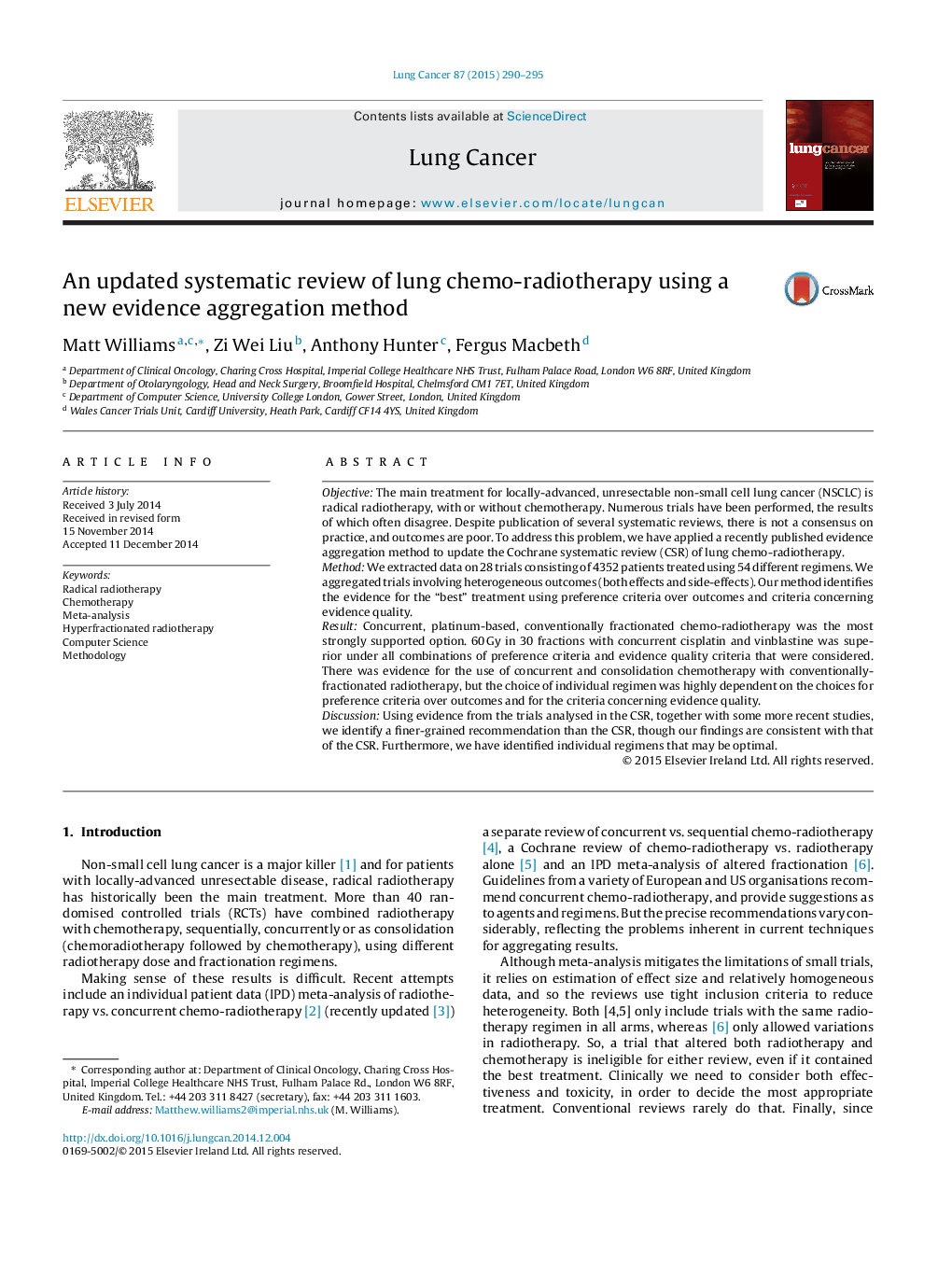| Article ID | Journal | Published Year | Pages | File Type |
|---|---|---|---|---|
| 2140747 | Lung Cancer | 2015 | 6 Pages |
ObjectiveThe main treatment for locally-advanced, unresectable non-small cell lung cancer (NSCLC) is radical radiotherapy, with or without chemotherapy. Numerous trials have been performed, the results of which often disagree. Despite publication of several systematic reviews, there is not a consensus on practice, and outcomes are poor. To address this problem, we have applied a recently published evidence aggregation method to update the Cochrane systematic review (CSR) of lung chemo-radiotherapy.MethodWe extracted data on 28 trials consisting of 4352 patients treated using 54 different regimens. We aggregated trials involving heterogeneous outcomes (both effects and side-effects). Our method identifies the evidence for the “best” treatment using preference criteria over outcomes and criteria concerning evidence quality.ResultConcurrent, platinum-based, conventionally fractionated chemo-radiotherapy was the most strongly supported option. 60 Gy in 30 fractions with concurrent cisplatin and vinblastine was superior under all combinations of preference criteria and evidence quality criteria that were considered. There was evidence for the use of concurrent and consolidation chemotherapy with conventionally-fractionated radiotherapy, but the choice of individual regimen was highly dependent on the choices for preference criteria over outcomes and for the criteria concerning evidence quality.DiscussionUsing evidence from the trials analysed in the CSR, together with some more recent studies, we identify a finer-grained recommendation than the CSR, though our findings are consistent with that of the CSR. Furthermore, we have identified individual regimens that may be optimal.
